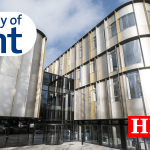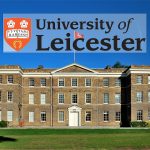University of Leeds
Overview
The University of Leeds was founded in 1904, but its origins go back to the nineteenth century with the founding of the Leeds School of Medicine in 1831 and then the Yorkshire College of Science in 1874.
In 1831 a group of young men established the Leeds School of Medicine which meant that medical students no longer had to go to Scotland, London or overseas to study.
The Yorkshire College of Science was founded around 40 years later largely as a result of concerns by the wool and textile industries that the rapid development of new technologies in Europe posed a threat to the local cloth trade.
Why choose University of Leeds?
- Power and process engineering
- Automotive engineering
- Civil engineering
- Electronic and electrical engineering
- Environmental engineering and waste management
- Fire engineering
- Medical and biological engineering
- Particle science and engineering
Students nominated by their home university for an exchange place will have no fees to pay to the University of Leeds.
Below are our study abroad tuition fees for 2015/16
| Study abroad period | Self funded students from outside the EU | Self funded students from within the EU/ EEA, but not from an Erasmus+ partner |
| Full year | £10,800 | £9,000 |
| One semester only | £6,050 | £4,500 |
Deadlines
Semester 1 (September 2015) start: Worldwide Exchange and fee paying students must apply by 31 March 2015. If you are an Erasmus+ student, apply by 15 April 2015.
Semester 2 (January 2016) start: all students must apply by 31 October 2015.
If you want to do a pre-sessional language programme before your study abroad semester:
- for a 20 week language course, starting April 2015: (the deadline has passed. Dates for 2016 to be confirmed)
- for a 10 week language course, starting July 2015, or a six week language course, starting August 2015: apply by 31 March 2015
- for a 10 week language course, starting in October 2015: apply by 31 July 2015
If you are not applying as an exchange student, you may also decide to use the services of our approved overseas representatives to help you with your application. They are Butler Institute for Study Abroad (IFSA Butler), Academic Programs International (API) and BEO Japan.
ACCESS FOR ALL
For the sons of local families, it was one of the first colleges for students of all faiths and backgrounds. The College supported the values of the recently established University College, London and Owens College in Manchester. These had been set up to challenge the exclusivity of Oxford and Cambridge universities, which were predominantly for the Anglican aristocracy and gentry.

By contrast, this new generation of learning institutions welcomed all religions, including Dissenters, Catholics, Jews and agnostics. In addition, they placed particular emphasis on meeting the technological demands of the fast-changing Victorian era. From the outset, the College, particularly, put its full weight behind scientific studies.
After a few years, classics, modern literature and history were added to the science subjects being offered and the Yorkshire College of Science became simply the Yorkshire College.
In 1884, the College combined with the School of Medicine and three years later the two Leeds-based institutions joined forces with Owens College Manchester, and University College Liverpool, to become the federal Victoria University.
THE UNIVERSITY OF LEEDS
It wasn’t long, however, before each of the cities started to consider the benefits of forming their own universities. After Manchester and Liverpool had taken the decision to establish universities, Leeds also took the leap and in 1904, King Edward VII granted the University its own Charter as an independent institution.
GROWING REPUTATION AND NUMBERS
Within three or four years the number of students began to increase rapidly and changes to state education meant that students were arriving with a better educational foundation. The ten years to the outbreak of war in 1914 were ones of growth and consolidation. Most importantly, the new University started to develop a strong tradition of research.
Unlike Owens College Manchester, the Yorkshire College had always permitted women as students. However, they did not enrol in significant numbers until special facilities were provided at the Day Training College in 1896. The first women graduated from the University of Leeds in 1905.
At the time that the Yorkshire College received its Royal Charter, seven out of eight students came from Yorkshire. Now, the University of Leeds not only welcomes students from all over the United Kingdom, its reputation worldwide makes it a truly multi-cultural and international institution with students and staff from over 100 countries studying and working on campus.
FACULTIES
- Faculty of Arts
- Faculty of Biological Sciences
- Faculty of Business
- Faculty of Education, Social Sciences and Law
- Faculty of Engineering (includes the School of Computing)
- Faculty of Environment
- Faculty of Mathematics and Physical Sciences
- Faculty of Medicine and Health
- Faculty of Performance, Visual Arts and Communications






